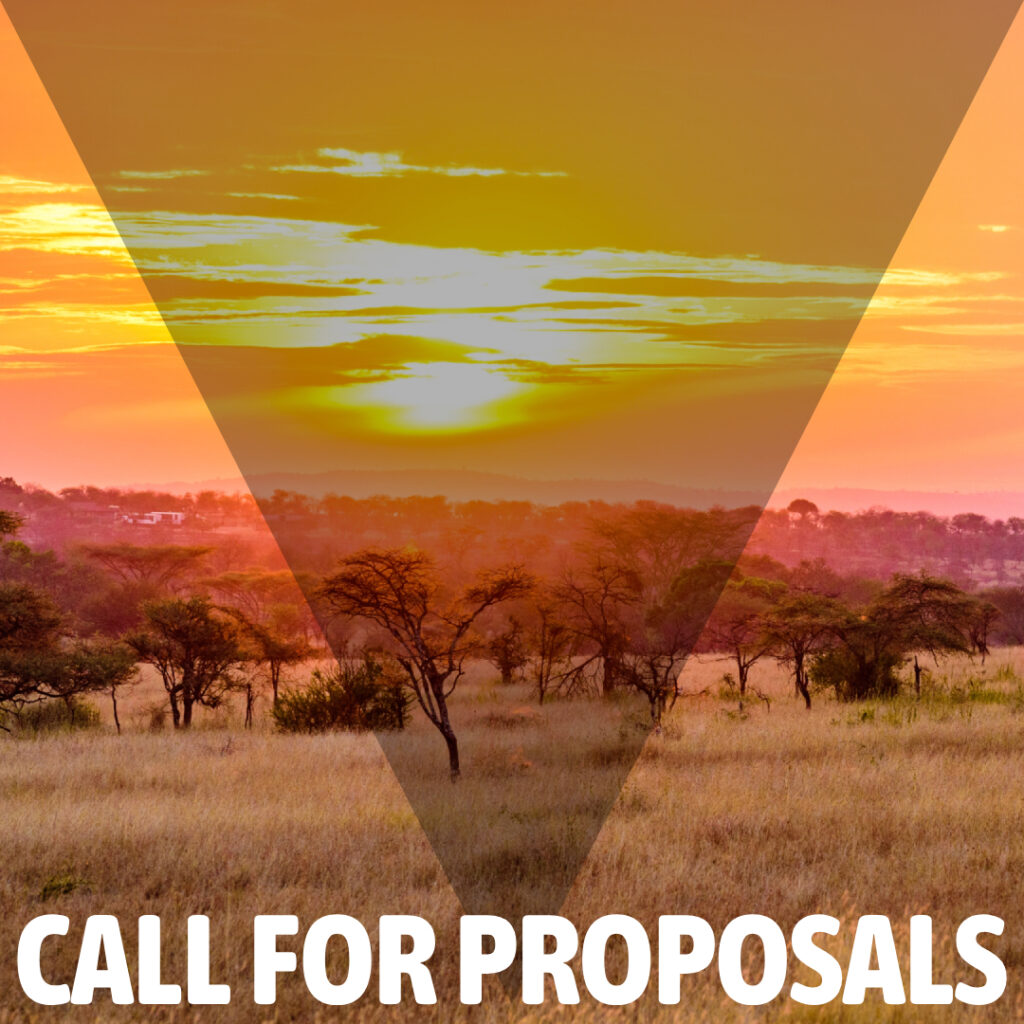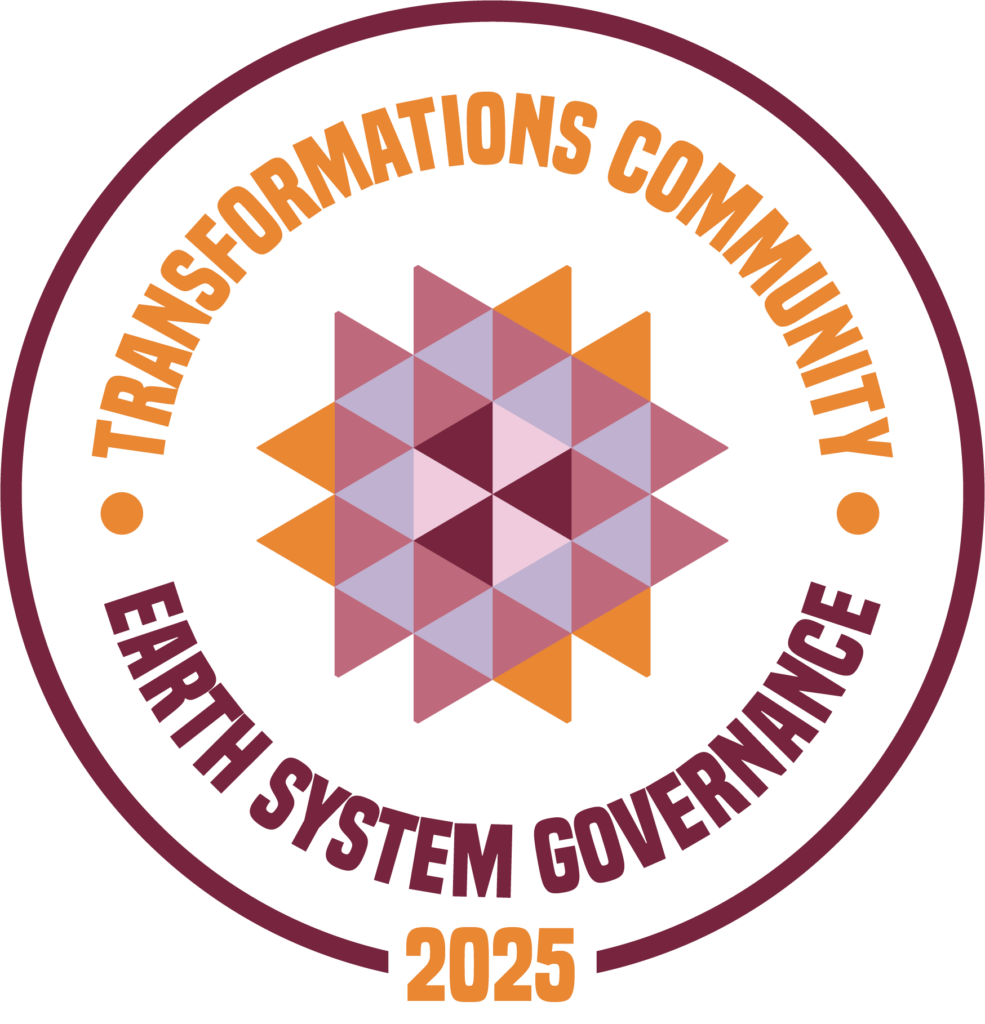
August 18–21, 2025 | South Africa
August 11–13, 2025 | Online Conference
Navigating Sustainability Transformations Towards Justice & Equity
TC/ESG25 Call for Proposals
Creating a fair and inclusive future within our planet’s limits requires transformative changes that improve life for current and future generations, across all species. These transformations must tackle injustices rooted in systems like colonialism while avoiding new inequities. This conference brings together academics and practitioners to share insights and foster transdisciplinary collaborations for sustainable, just futures.


The TC/ESG25 call for papers welcomes both theoretical and empirical research, alongside sessions focused on practical techniques, workshops, and case studies. Submissions combining scholarly work with practical application, and examine how integrated approaches drive systemic change, are highly encouraged. The program aims to bridge the gap between theory and practice, fostering dialogue that encompasses academic rigor with practical relevance.
Early submission deadline: 30 November
Themes:
Bridging and bonding
This theme emphasizes collaborative community engagement and participatory methods and processes. It focuses on how multiple knowledge systems, world views, and social-ecological norms influence the conceptualization and implementation of sustainability initiatives.
Contributions could address aspects of participatory governance, including community projects, leadership within networks, enabling change agents, and capacity-exchange programs that support community participation. We especially encourage submissions that showcase South-South dialogue and that foreground indigenous and local knowledge systems.
Specific topics could include participatory methods for visioning and collaboration, confronting issues of colonization, and achieving equity in knowledge co-production across marine and terrestrial social-ecological systems. Art-science and other inter and trans-disciplinary collaborations are especially welcomed.
Transformative culture and learning
This theme explores the critical role of cultural narratives, imaginative approaches, and innovative educational practices in driving sustainability transformations. It emphasizes the integration of inner transformations, well-being, and leadership development in shaping values and norms that support transformative change from local to global levels.
Contributions can address methods for fostering a culture of sustainability, including participatory visioning and pathway development, storytelling, and creative problem-solving. Key topics include transformative learning methods, educational innovations, lifelong learning, art and media, decolonial praxis, and scaling successful practices appropriately. Additionally, it covers ensuring inclusion and access for under-represented communities and knowledge systems, acknowledging the ‘dark side’ of transformation processes.
Disruptive change
This theme examines the rapid and often disruptive nature of technological, cultural, political and economic changes and their implications for sustainability transformations. It invites presentations and innovative sessions exploring strategies to combat the negative impacts of technological developments as well as ways to harness disruptive changes in ways that can foster transformations to benefit all segments of society, including marginalized groups.
Examples of possible topics include managing the impacts of Al and machine learning on the environment and communities, integrating systems sensing for navigating eco-social crises, technology for improved data monitoring and transparency, and governance strategies for developing and deploying smart technologies. Economic innovation is also included here, such as sustainable finance models and new ways to address the economic impacts of technological adoption.
Governance and multilateralism under pressure
This theme invites contributions on the relationship between democracy and sustainability transformations and the mechanisms to bolster innovative democratic processes, enhance multilateral cooperation, and develop governance models that support sustainability and address power dynamics.
Topics include innovative pathways for transformation, such as strategies to navigate political challenges and resource constraints, and generating knowledge and processes for justly and equitably implementing global environmental agreements like the Paris Agreement and the Global Biodiversity Framework.
Emphasis is placed on citizen engagement and participatory democracy, as well as effective legal and policy interventions and governance frameworks that bring together diverse stakeholders across all scales.
Session Types
Speed Talk Sessions are designed to accommodate a variety of short presentations, allowing presenters to briefly share key insights, followed by deeper, small-group discussions. The format encourages concise communication of ideas and facilitates in-depth discussions tailored to participants’ interests.
Pre-Organized Panel Talks offer a flexible format combining brief presentations with opportunities for interactive and discursive elements. This format is ideal for pre-organized sessions but allows flexibility in structure, letting proposers design sessions that best suit their topics and goals. Whether you prefer a more traditional panel with Q&A or a mix of presentations and interactive dialogue, this track encourages diverse approaches while maintaining a focus on engagement and collaboration.
This session type invites a range of interactive and collaborative formats to foster dynamic participation and deep exploration of themes. Submitters can blend structured presentations with flexible, discussion-based methods, allowing the session to adapt to the needs of the topic and audience. Facilitators may opt for a mix of brief panelist insights, participatory activities, and thematic discussions, which could include approaches like World Café, Fishbowl Conversations, or other dialogue methods.
The T-Lab or Transformations Lab offers a flexible and dynamic format to explore transformative practices, policies, or a combination of both. It emphasizes hands-on experiences, interactive methods, and collaborative dialogue to foster significant change and knowledge co-production. Sessions will be up to 1.5 hours long (double allocations for 3hr-sessions can be requested) and can include a variety of formats such as tool demonstrations, working methods, processes, games, exercises, or policy discussions. The goal is to engage practitioners, policy makers, scholars, and community members in a dynamic exchange of ideas and practices.
We recognize that transformations require creative, inspiring, and restorative spaces and practices. This session invites proposals for incorporating the arts and alternative modes of expression into the conference, providing opportunities for performance, film, and other creative practices that contribute to the theme of transformation. These sessions aim to engage participants in new and innovative ways, fostering a deeper connection to the themes of the conference.
We invite you to submit proposals for TransAction workshops to be held on Sunday, August 17th, 2025, just before the TC/ESG Conference 2025. These workshops, lasting anywhere from 3 hours to the whole day, are designed to engage transdisciplinary scholars and action researchers in hands-on, skills-oriented sessions that promote innovation in the field of sustainability transformations.
We are looking for workshops that emphasize practical skills, competencies, and interactive methods to facilitate deep learning and collaboration. Insights and outcomes from these workshops will be shared during the conference’s opening plenary, helping to frame the discussions throughout the event.
Proposal Criteria
Proposal Selection Criteria
Selection criteria will evaluate how a proposal:
We particularly welcome sessions that:
Focuses on the themes of
the conference and demonstrates sustainability transformations toward justice and equity.
Directly related to transformations and clearly states the transformation approach.
Explicitly links knowledge/knowledge generation with actions, impacts, and solutions.
Demonstrates a transdisciplinary or multi-sectoral approach.
Considers participant engagement, before during and after the conference.
Is clearly articulated, original and well justified.
Consider equity, accessibility and social inclusion conserns.
Consider the inclusion of indigenous and local knowledge in transformation processes.
Are led by speakers from low and middle income countries or indigenous communities.
Showcase examples or research that are internationally applicable/adaptable.
Are two way/multi-way knowledge exchange or co-production experiences.
Are original, creative or non-traditional in format.
Selection criteria will evaluate how a proposal:
We particularly welcome sessions that:
Focuses on the themes of
the conference and demonstrates sustainability transformations toward justice and equity.
Directly related to transformations and clearly states the transformation approach.
Explicitly links knowledge/knowledge generation with actions, impacts, and solutions.
Demonstrates a transdisciplinary or multi-sectoral approach.
Considers participant engagement, before during and after the conference.
Is clearly articulated, original and well justified.
Consider equity, accessibility and social inclusion conserns.
Consider the inclusion of indigenous and local knowledge in transformation processes.
Are led by speakers from low and middle income countries or indigenous communities.
Showcase examples or research that are internationally applicable/adaptable.
Are two way/multi-way knowledge exchange or co-production experiences.
Are original, creative or non-traditional in format.
Process & Important Dates:
Individuals are welcome to submit multiple proposals. However, to encourage broader participation, we may limit the number of accepted proposals per person. Some proposals may be invited for online-only participation depending on program needs.
NOV 30, 2024
Submission deadline
FEB 5, 2025
Acceptance notifications
JULY 1, 2025
Final registration deadline
AUG 11-13, 2025
Online conference
AUG 18–21, 2025
TC/ESG 2025 Conference
Visa and Submission Requirements for Attendees
If you require an invitation letter for visa purposes, please indicate this in your submission.
For those traveling to South Africa, we recommend applying for a ‘Visitor’s Visa’ that aligns with your purpose,
such as ‘business visitor activities,’ ‘attending a conference or expo,’ or ‘holiday.’
Important: Visa requirements and conditions can vary based on nationality and specific circumstances. Please check the South African Department of Home Affairs website or consult your local South African embassy or consulate for the most up-to-date information.
If you have any questions, please contact info@transformationscommunity.org
Explore more about Transformations ’25

TC/ESG25 Conference | August 18–21, 2025 | Kruger National Park, South Africa
TCX-York: Organizing for Transformation | June 25–27, 2025 | University of York, UK
© 2024 Transformations Community. All Rights Reserved.

